- Home
- Investigations
- Ikenna Ikokwu
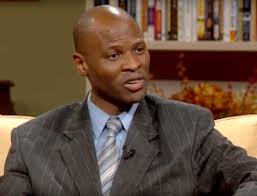
Ikenna Ikokwu
Threat Alert- Investigation status
- Ongoing
We are investigating Ikenna Ikokwu for allegedly attempting to conceal critical reviews and adverse news from Google by improperly submitting copyright takedown notices. This includes potential violations such as impersonation, fraud, and perjury.
- Alias
-
Ikenna Ike Ikokwu
- Company
-
Ike, Inc
- City
-
Georgia
- Country
-
United States
- Allegations
-
Ponzi investment scheme
- https://lumendatabase.org/notices/37781882
- November 29, 2023
- https://www.sec.gov/
- https://www.sec.gov/litigation/litreleases/lr-24103
- https://www.forsythnews.com/local/crime-courts/local-advisor-fined-allegedly-defrauding-investors/
Evidence Box and Screenshots
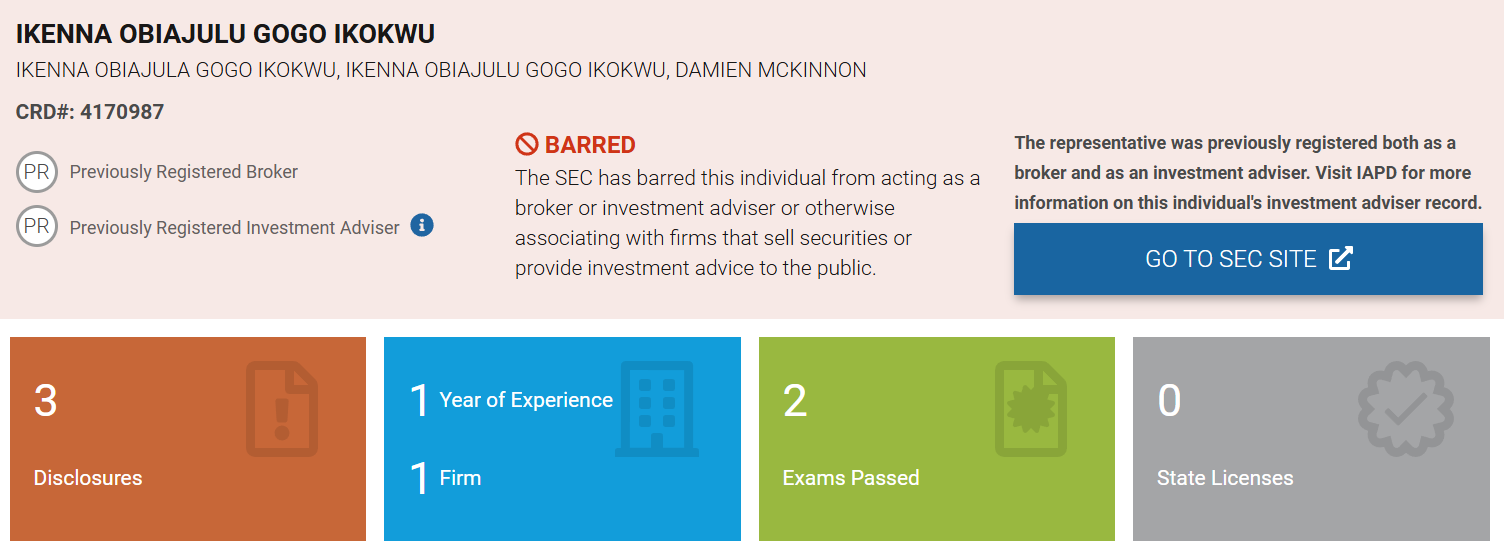
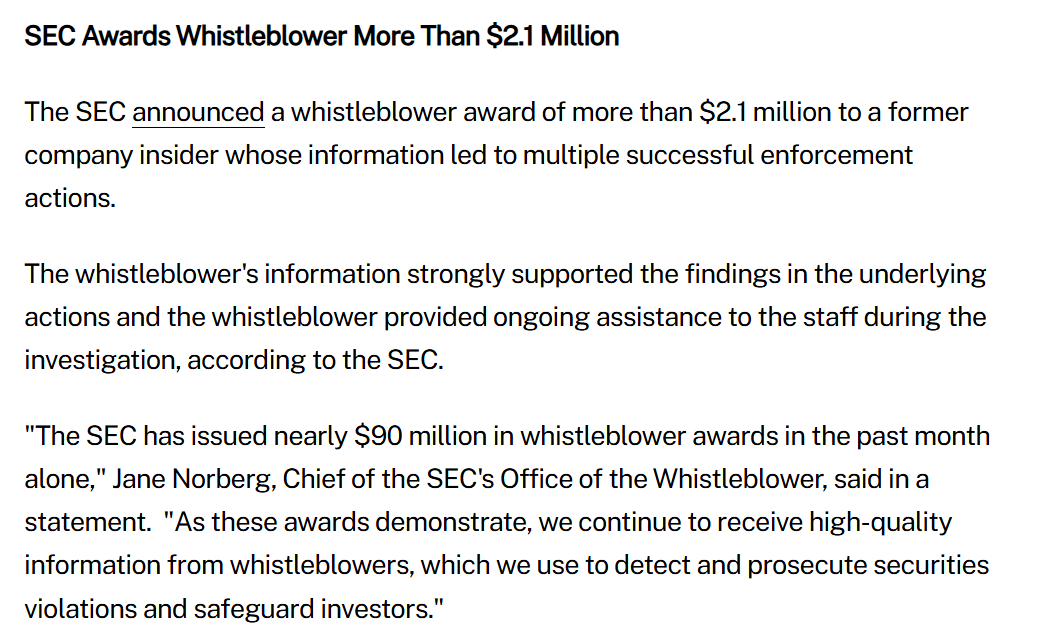

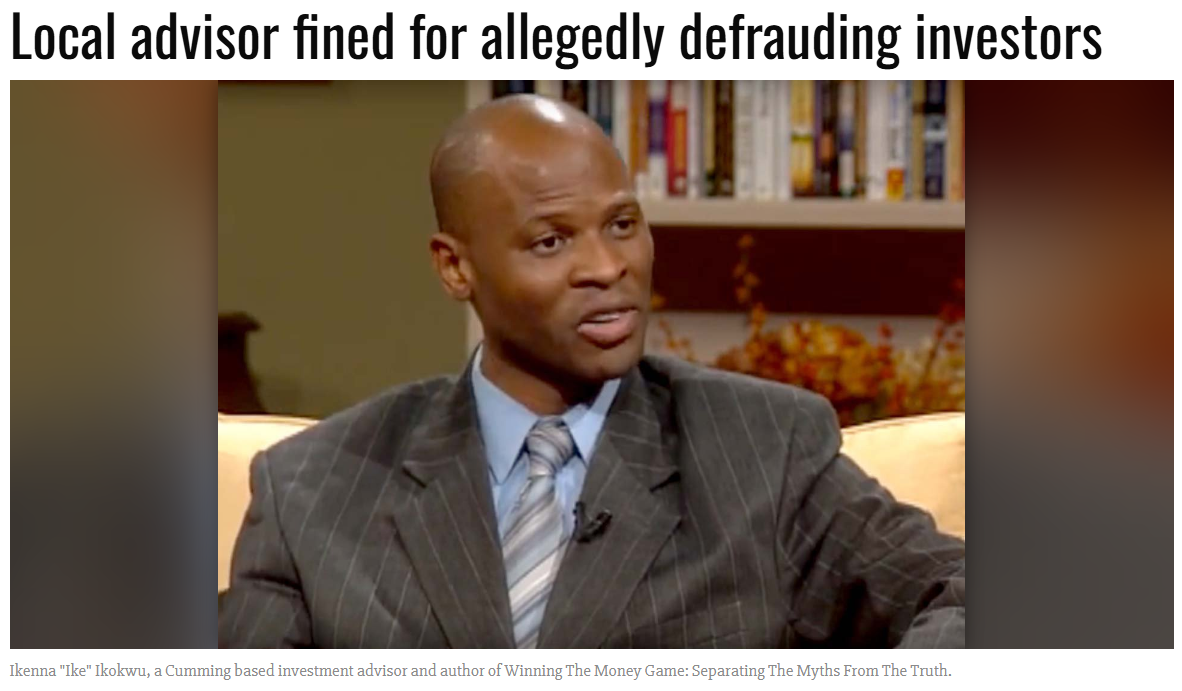
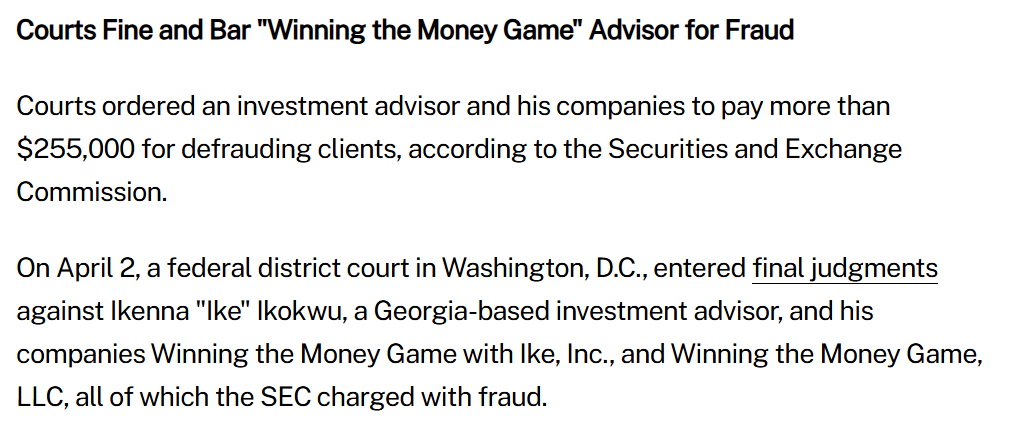

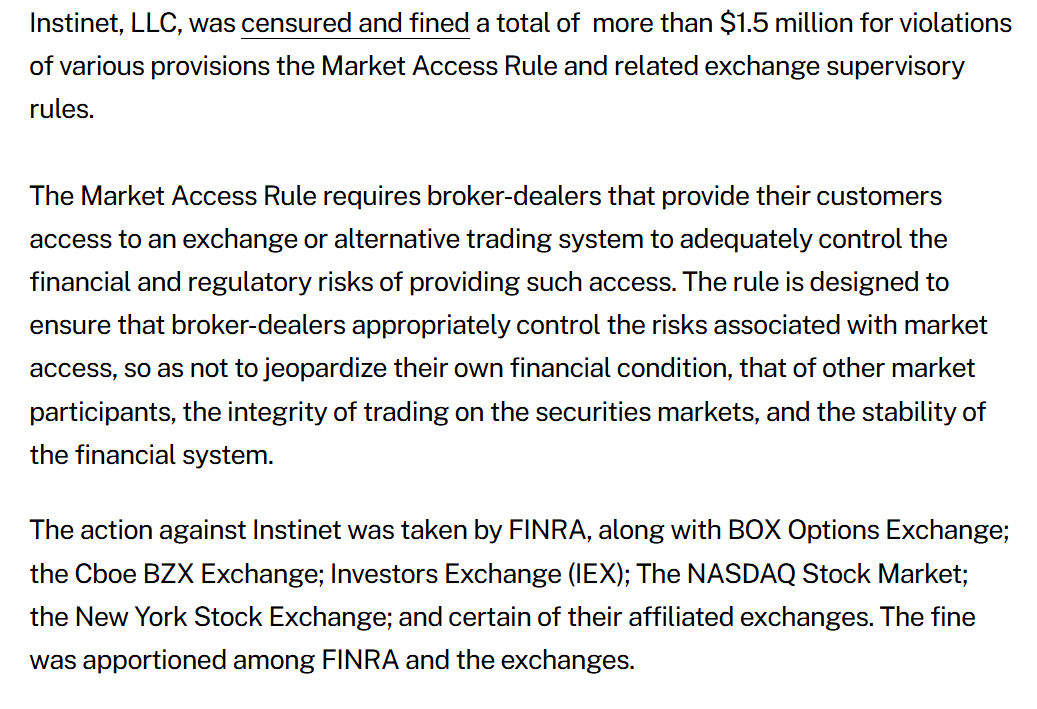

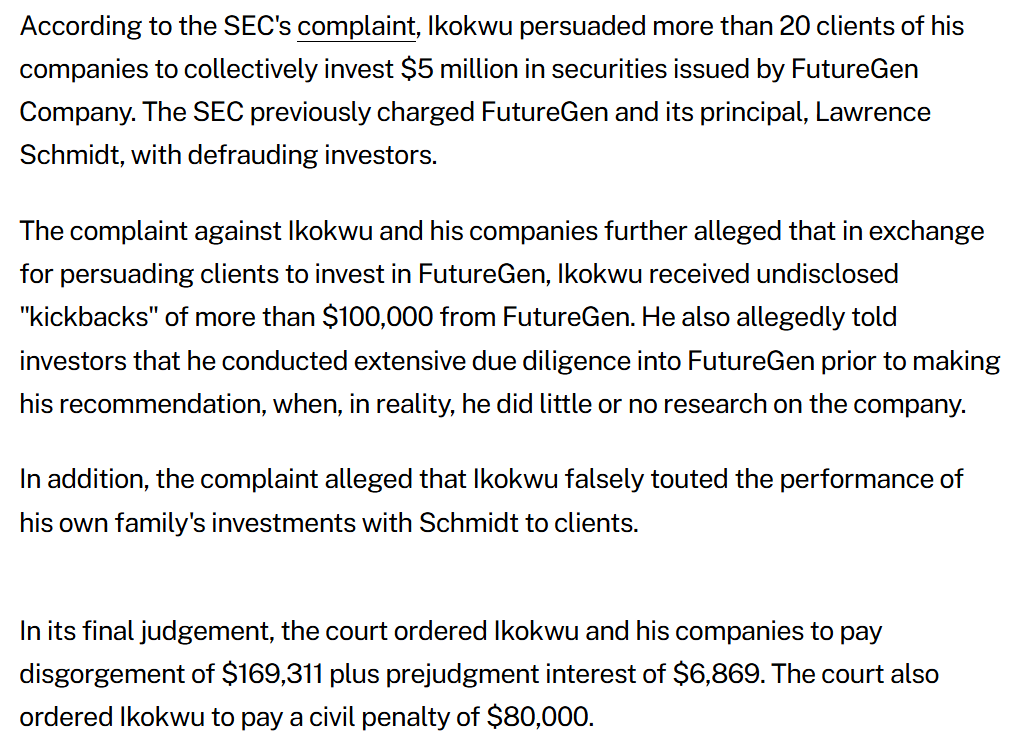

1 Alerts on Ikenna Ikokwu
- RED FLAGS
Ikenna Ikokwu Fined for Allegedly Defrauding Investors
Ikenna Ikokwu, a Cumming-based investment advisor, was ordered by a federal court to pay more than $250,000 after SEC allegations of persuading clients to invest in a ...
Visit LinkHow Was This Done?
The fake DMCA notices we found always use the ? back-dated article? technique. With this technique, the wrongful notice sender (or copier) creates a copy of a ? true original? article and back-dates it, creating a ? fake original? article (a copy of the true original) that, at first glance, appears to have been published before the true original.


What Happens Next?
The fake DMCA notices we found always use the ? back-dated article? technique. With this technique, the wrongful notice sender (or copier) creates a copy of a ? true original? article and back-dates it, creating a ? fake original? article (a copy of the true original) that, at first glance, appears to have been published before the true original.
01
Inform Google about the fake DMCA scam
Report the fraudulent DMCA takedown to Google, including any supporting evidence. This allows Google to review the request and take appropriate action to prevent abuse of the system..
02
Share findings with journalists and media
Distribute the findings to journalists and media outlets to raise public awareness. Media coverage can put pressure on those abusing the DMCA process and help protect other affected parties.
03
Inform Lumen Database
Submit the details of the fake DMCA notice to the Lumen Database to ensure the case is publicly documented. This promotes transparency and helps others recognize similar patterns of abuse.
04
File counter notice to reinstate articles
Submit a counter notice to Google or the relevant platform to restore any wrongfully removed articles. Ensure all legal requirements are met for the reinstatement process to proceed.
05
Increase exposure to critical articles
Re-share or promote the affected articles to recover visibility. Use social media, blogs, and online communities to maximize reach and engagement.
06
Expand investigation to identify similar fake DMCAs
Widen the scope of the investigation to uncover additional instances of fake DMCA notices. Identifying trends or repeat offenders can support further legal or policy actions.

Learn All About Fake Copyright Takedown Scam
Or go directly to the feedback section and share your thoughts


Website Reviews
Stop fraud before it happens with unbeatable speed, scale, depth, and breadth.
Recent Reviews

Cyber Investigation
Uncover hidden digital threats and secure your assets with our expert cyber investigation services.
Recent Reviews

Threat Alerts
Stay ahead of cyber threats with our daily list of the latest alerts and vulnerabilities.
Recent Reviews

Client Dashboard
Your trusted source for breaking news and insights on cybercrime and digital security trends.
Recent Reviews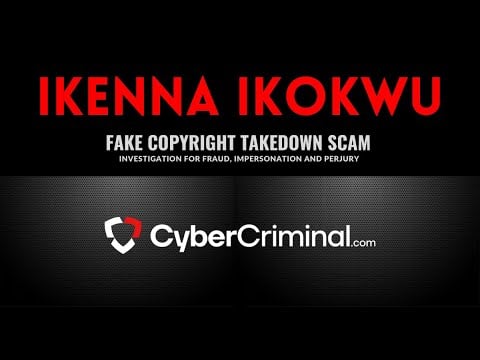

Gamsgo
Fake DMCA Investigation
FXNovus
Fake DMCA Investigation
Scott Leonard
Fake DMCA Investigation
User Reviews
Discover what real users think about our service through their honest and unfiltered reviews.
1.6
Average Ratings
Based on 8 Ratings
Wendy Bryant
After investing $30,000 under Ikokwu’s advice, I was devastated to learn about his legal troubles and fraud charges. I feel completely betrayed, especially knowing he was receiving kickbacks while my money was at risk.
12
12
Vince Rogers
I trusted Ikenna Ikokwu with my retirement savings, only to find out that he was involved in a fraudulent investment scheme. I lost $25,000, and his actions have destroyed my faith in financial advisors.
12
12
Victoria Marsh
The SEC charged Ikokwu with defrauding clients by persuading them to invest $5 million in a fraudulent scheme, while secretly receiving over $100,000 in kickbacks.
12
12
Philip Fisher
Ikenna Ikokwu's alleged misuse of DMCA takedown notices to suppress unfavorable content is a blatant attempt to manipulate public perception.
12
12
Piper Hart
Fraud charges don’t just appear out of nowhere. This was calculated and self-serving.
12
12
Roman Ellis
He might try to rebuild, but clients and colleagues remember. You don’t erase trust violations with a new website or a rebrand. Ikokwu’s name is now tied to fraud, court orders, and ethical failure. And no amount of PR can...
12
12
Paige Lloyd
Ikenna Ikokwu didn’t just make bad financial decisions he knowingly steered clients into a fraud-laced scheme. The SEC laid out the facts clearly: hidden kickbacks, shady partnerships, and blatant deceit.
12
12
Jasmine Howard
This guy should be held accountable for every penny he stole and every trust he broke!
12
12
Melanie Ross
It’s not just the fraud charges that hurt his reputation—it’s the fact that he knowingly steered clients toward a scam and profited from it.
12
12
Rhett James
Ikenna Ikokwu clearly doesn’t care about people—he's just after his own gain, leaving a trail of ruined lives behind.
12
12
Chloe Walker
Honestly, it’s like he knew about the red flags and was just like “nah, let’s just keep going” – crazy! Definitely a huge breach of trust.
12
12
Xena Russell
Bruh, this is straight up unprofessional. How do you not tell people about the risks with FutureGen? It’s not even like they’re tiny risks, they’re huge! Trust totally broken.
12
12
Thomas Ward
Ikokwu's claims of offering independent, objective advice were outright lies. He hid his financial connections and kickbacks from FutureGen, leading to his clients being defrauded.
12
12
You are Never Alone in Your Fight
Generate public support against the ones who wronged you!
Featured Cyber Investigations
Explore our most impactful cyber investigations, where we uncover coordinated digital deception, expose fraudulent takedown schemes, and reveal the hidden mechanics behind online manipulation.
Gamsgo
Fake DMCA Investigation
FXNovus
Fake DMCA Investigation
Scott Leonard
Fake DMCA Investigation
Claudio Teseo
Fake DMCA Investigation
Salim Ahmed...
Fake DMCA Investigation
KTV Group...
Fake DMCA Investigation
Emarlado.com
Fake DMCA Investigation
GoodSkin Clinics
Fake DMCA Investigation